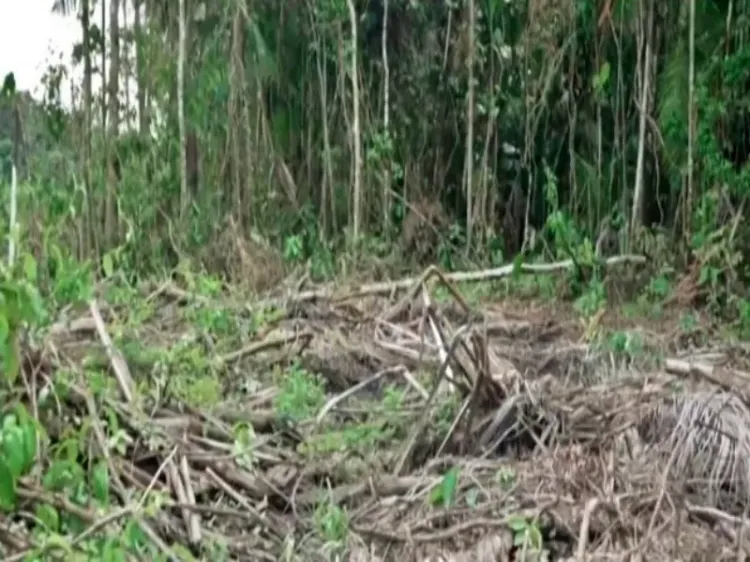Will Norway Adopt EU Rules to Combat Deforestation?

Synopsis
Key Takeaways
- Norway is adopting the EU Deforestation Regulation.
- New policies will target high-risk products linked to deforestation.
- Regulations aim to reduce carbon emissions by at least 32 million metric tonnes annually.
- Implementation will begin on December 30, 2025.
- Norway aligns its environmental standards with the EU.
Oslo, July 8 (NationPress) Norway is set to integrate significant aspects of the European Union's (EU) Deforestation Regulation into its national framework to enhance its fight against climate change and safeguard biodiversity, as announced by the Norwegian government on Monday.
This new policy will establish more stringent criteria for high-risk products typically associated with deforestation, such as wood, coffee, cocoa, rubber, and palm oil, according to a government press release reported by Xinhua.
Minister of Climate and Environment Andreas Bjelland Eriksen stated, "The transformation of forests into agricultural land is responsible for almost 90 percent of worldwide deforestation."
He emphasized the importance of ensuring that consumers can trust that their purchases do not contribute to the degradation of vital natural ecosystems.
The Norwegian government intends to merge the EU Deforestation Regulation with the European Economic Area (EEA) Agreement. This decision guarantees that the EEA-related provisions of the regulation will be enforced in Norway, harmonizing the nation's environmental standards with those of the EU.
However, the regulation will not extend to agricultural products like beef and soy, nor to exports directed at countries outside the EEA, as they do not fall under the EEA Agreement's jurisdiction. Nevertheless, national policies for these items will be evaluated.
Initially adopted in 2023, the EU Deforestation Regulation will come into effect on December 30, 2025.
According to an official statement, this regulation is part of a comprehensive strategy aimed at addressing deforestation and forest degradation, first articulated in the 2019 Commission Communication on intensifying EU efforts to protect and restore global forests.
This commitment was further reaffirmed through the European Green Deal, the EU Biodiversity Strategy for 2030, and the Farm to Fork Strategy.
The Commission has introduced an Implementing Regulation under the EU Deforestation Regulation (EUDR), which categorizes nations based on their deforestation risk associated with the production of the seven commodities covered by EUDR (cattle, cocoa, coffee, oil palm, rubber, soya, and wood).
The statement highlights that the new regulations aim to ensure that imported products consumed by Europeans do not contribute to deforestation and forest degradation globally; reduce carbon emissions linked to EU consumption and production of these commodities by a minimum of 32 million metric tonnes annually, and address all deforestation driven by agricultural expansion for the production of commodities encompassed by the regulation, along with forest degradation.









